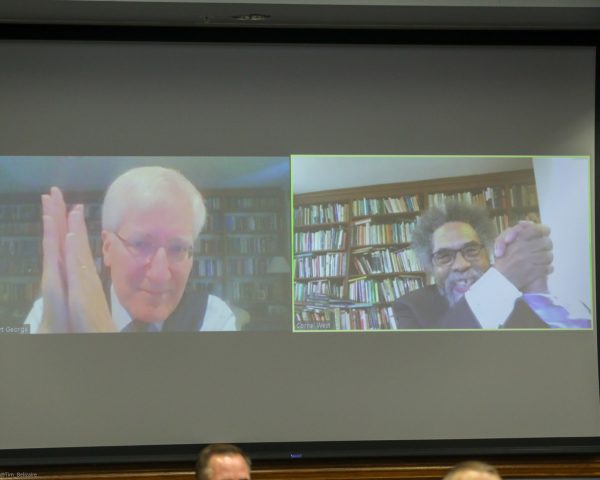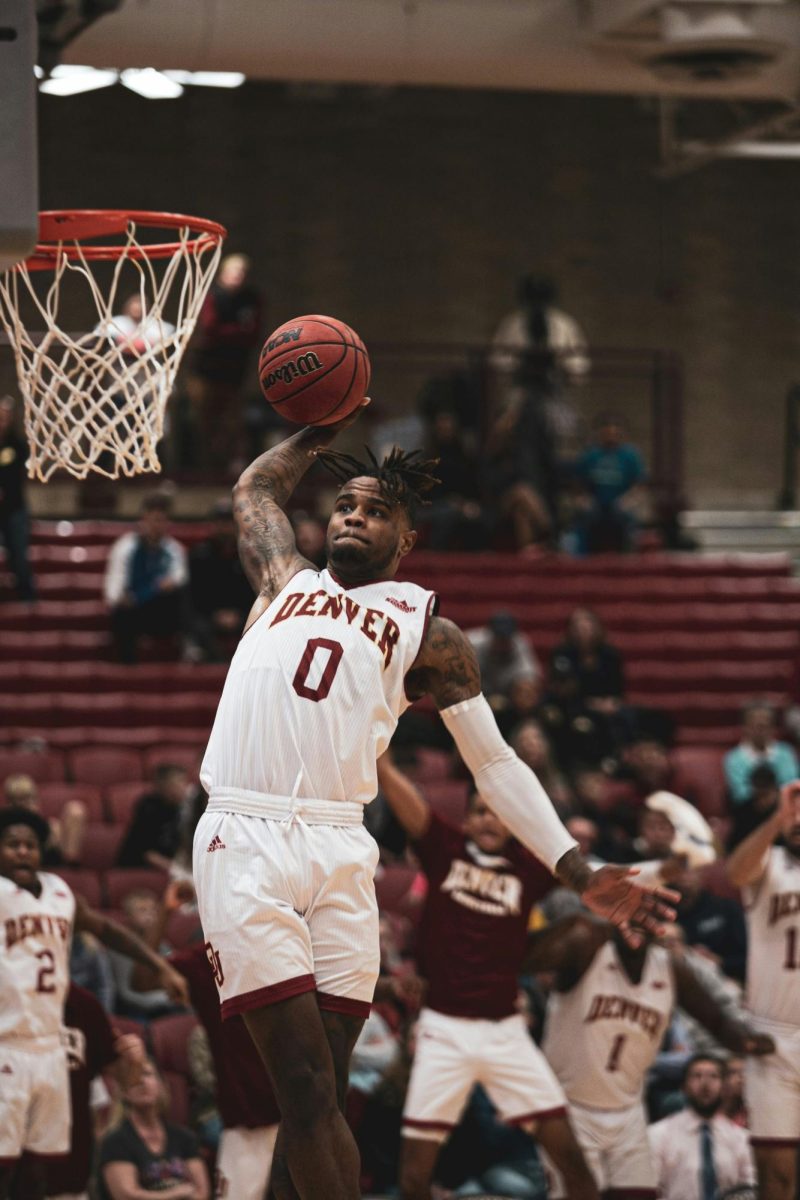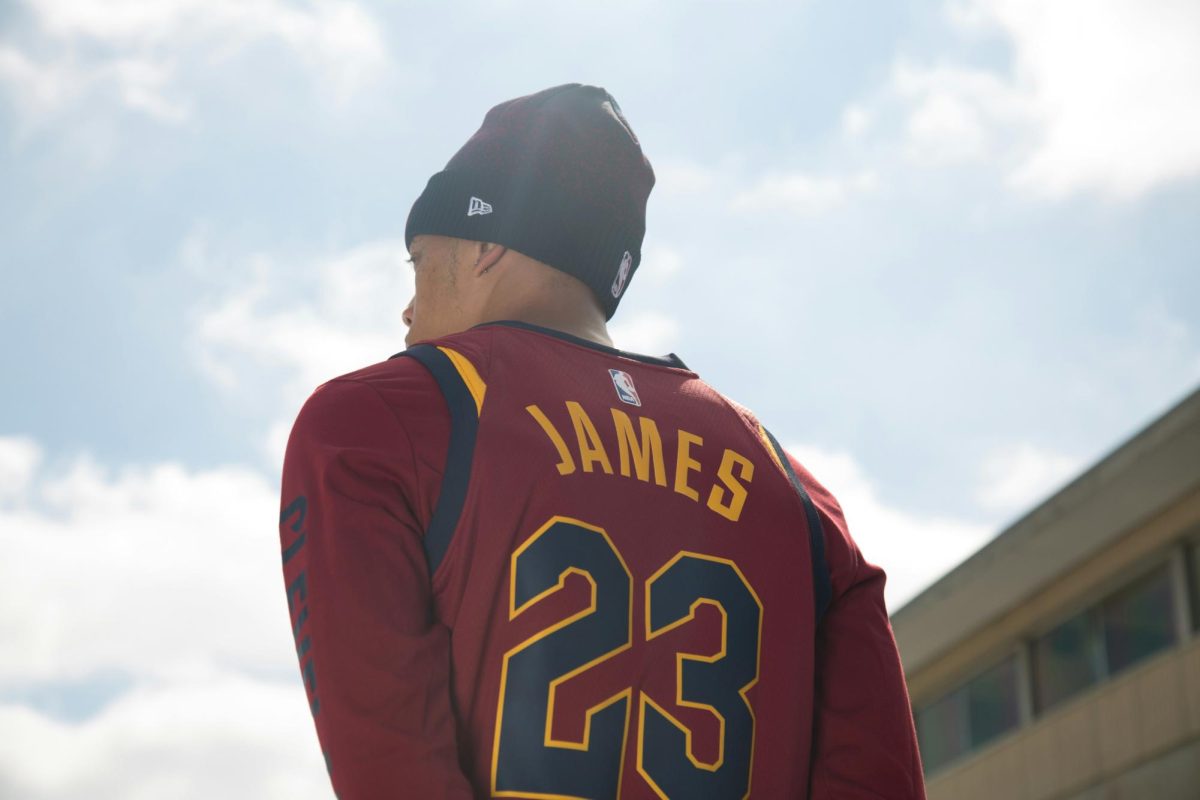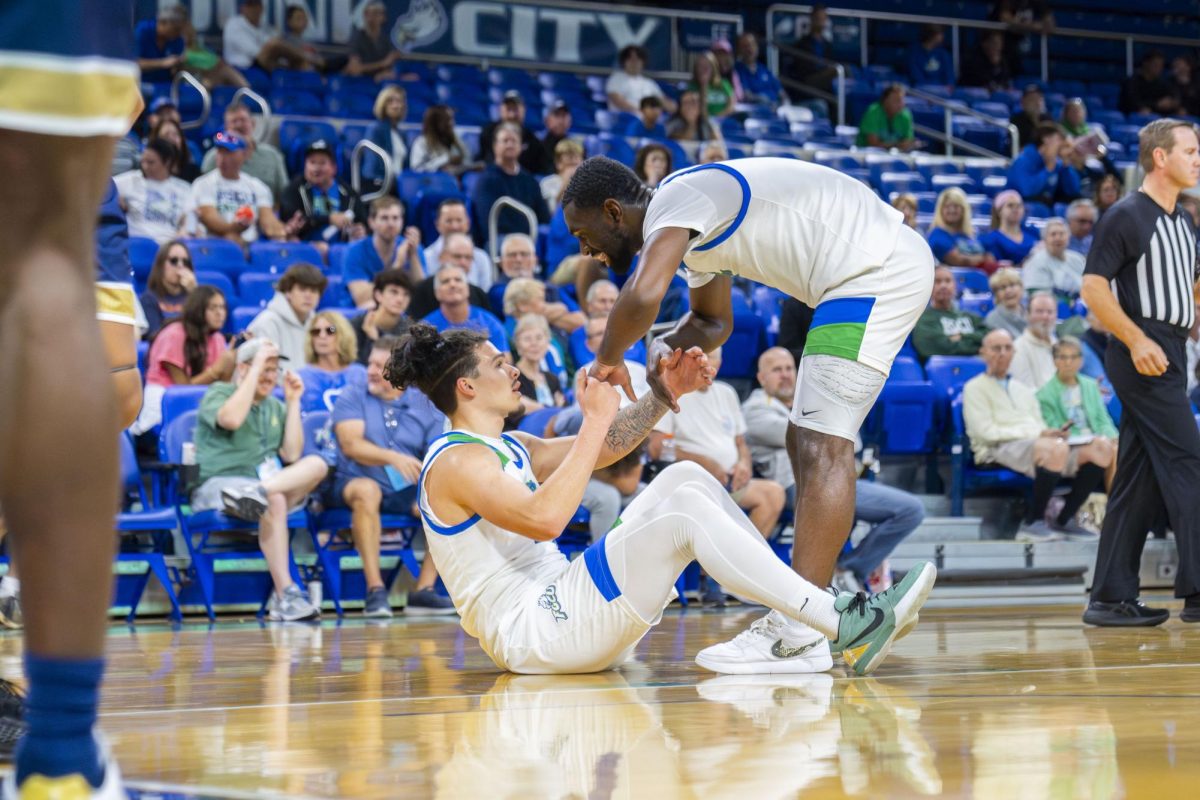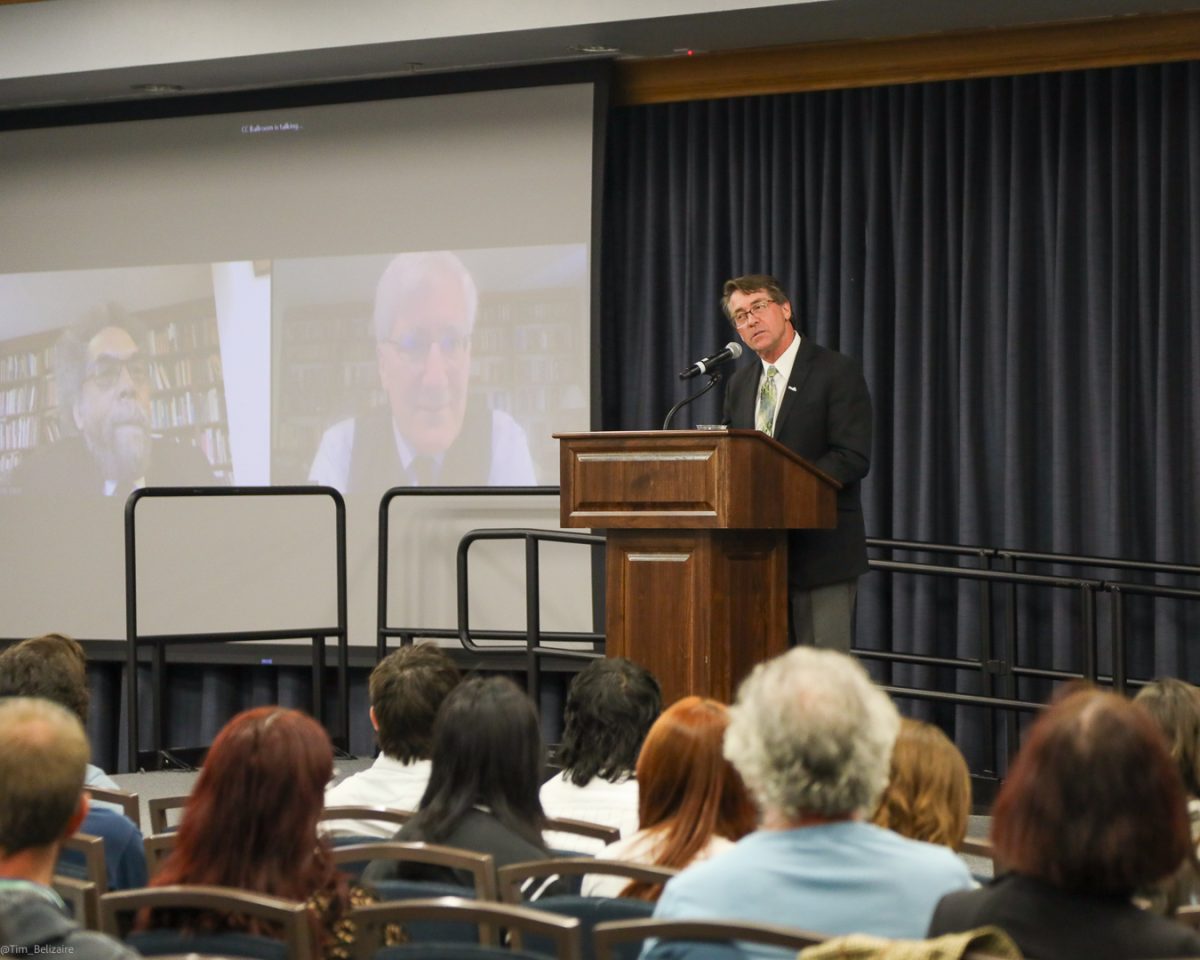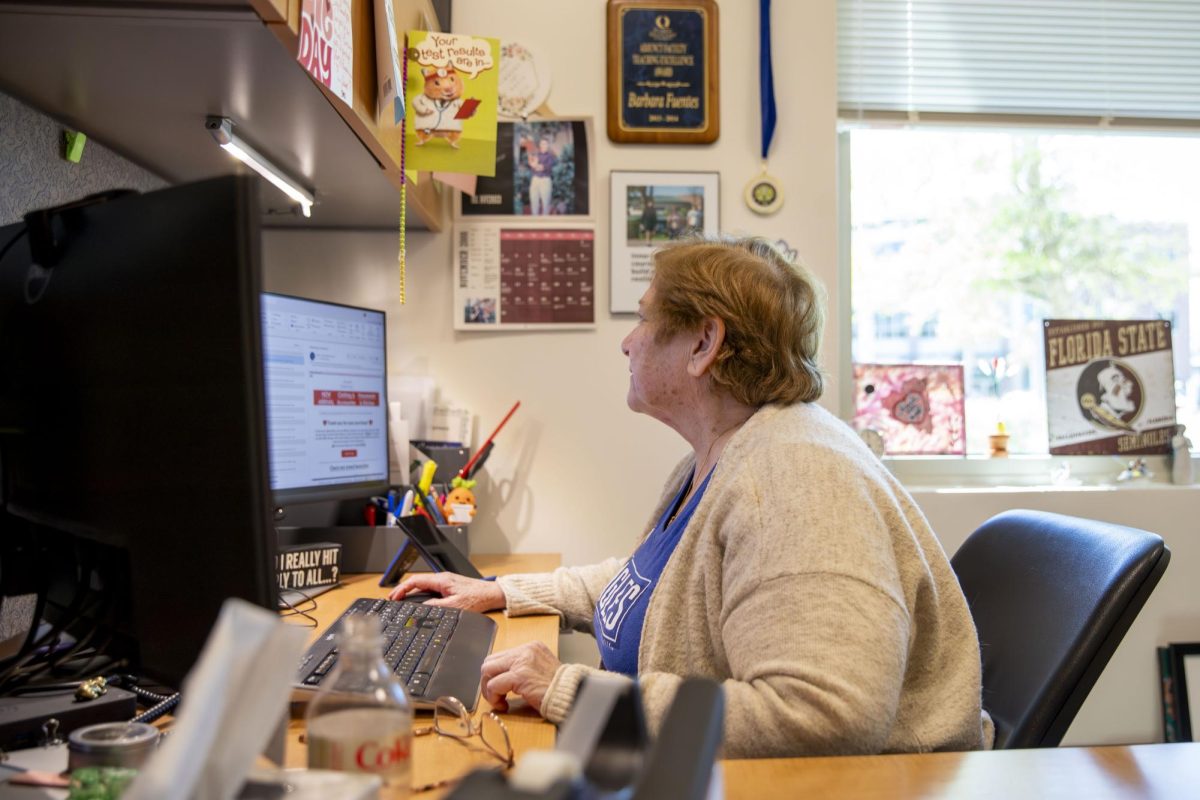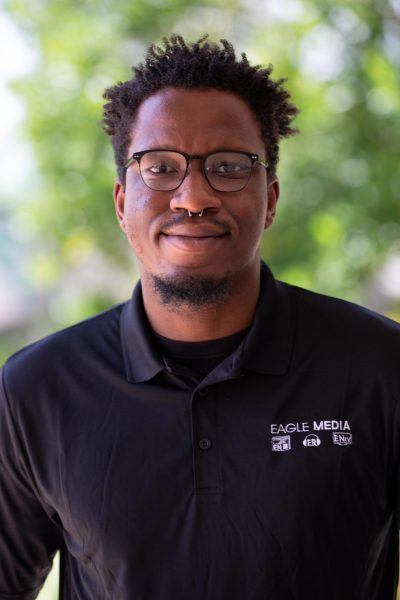On Oct. 16, U.S. 2024 presidential candidate Dr. Cornel West had a debate with legal scholar Dr. Robert George on affirmative action and the cost of higher education. The virtual debate was produced by FGCU’s Office of Public Policy Events. Dr. Christopher Phillips, who authored the book Socrates Café, hosted the event. Multiple Florida schools were a part of the event virtually.
West and George appeared virtually and Phillips appeared in-person. Both West and George were amicable to each other throughout the debate. Before the debate, West and George stressed the importance of being able to disagree civilly.
“You ask about the state of civil discourse today? It’s dreadful, appalling. People are treating each other, because of their political disagreements, as if they are enemies,” George said.
In describing the state of civil discourse, West recalls being in New York recently and seeing someone from the New York Post. He was questioned about a professor and whether the professor should be fired for their comments. West did not believe the professor should be fired.
During the debate, West emphasized that affirmative action was merit-based and was meant to even the playing field.
“Affirmative action never meant less qualified black people gaining access to positions. It meant broadening the pool of those who were qualified, and then you make your choices based on that pool,” West said.
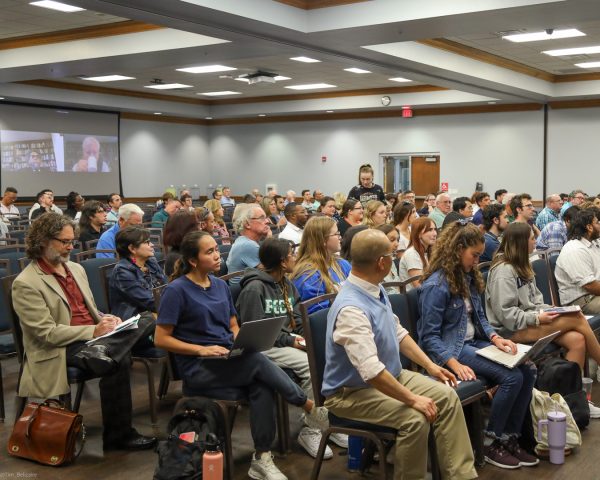
West then argued that there needs to be an update to the system so that it addressed not only race, but socioeconomic status.
“I’ve always been one who argued for both class and race because I thought, in fact, that in the end, when you get a third-generation black person whose parents were upper class, that they didn’t deserve the same exact attention of a poor white, who came from West Virginia or Kentucky because you’re talking about socioeconomic disadvantages,” West said.
George believes that race should play a factor in college admissions but that it should not be a factor by itself.
“If we adopt a system that is meant to identify the best talent irrespective of socioeconomic condition and find those who have not had the opportunities that wealthier students have, we can bring them in,” George said.
George and West agreed on issues when it came to the cost of higher education. George noted that the high cost of higher-ed makes college more of an investment than an institution of learning.
“Students have no choice but to instrumentalize their education to future employment. They really have no choice because they know they’re going to have that stuff to pay off. And that undermines the ability of those institutions like mine (Princeton), that are liberal arts institutions, to encourage our students to look at their education in a non-instrumental way,” George said.
West believes people should see what other countries have done in regard to affordable higher education and use that information to make the U.S. system better.
“Each nation ought to be distinct and original, but that doesn’t mean we can’t learn from other countries as to how it is they’re able to provide high quality not just education at the college level, but the post college level as well, ” West said.
University President Aysegul Timur was in attendance for the debate. She was pleased with the opportunity that students and staff had to see civil discourse.
“This is such a wonderful way of practicing civil discourse and having civil debates on topics that we sometimes feel uncomfortable talking about. This is the culture of FGCU, being able to have these conversations. I am thrilled to see students, staff, faculty, our community members in the same room having these types of debates together,” Timur said.
Timur wants events like this to continue and is working to attract more big names.
“We are still working on it. The goal is to bring different, diverse viewpoints in front of students, staff, faculty and everyone,” Timur said.
